How Billy met Molly - the orphaned otter who is now part of the family
A couple bond with an orphaned otter in Shetland
- Published
The lives of Billy and Susan Mail changed forever when a starving otter cub showed up at their doorstep.
It was 3 March 2021 when Billy noticed the emaciated animal, who he later named Molly, cracking crabs near his house in Shetland.
Billy says nurturing the cub back to health made him rediscover the joy he had lost following the recent death of his parents.
And it inspired wildlife filmmaker Charlie Hamilton-James to turn their unlikely friendship into an award-winning documentary.
How it all began
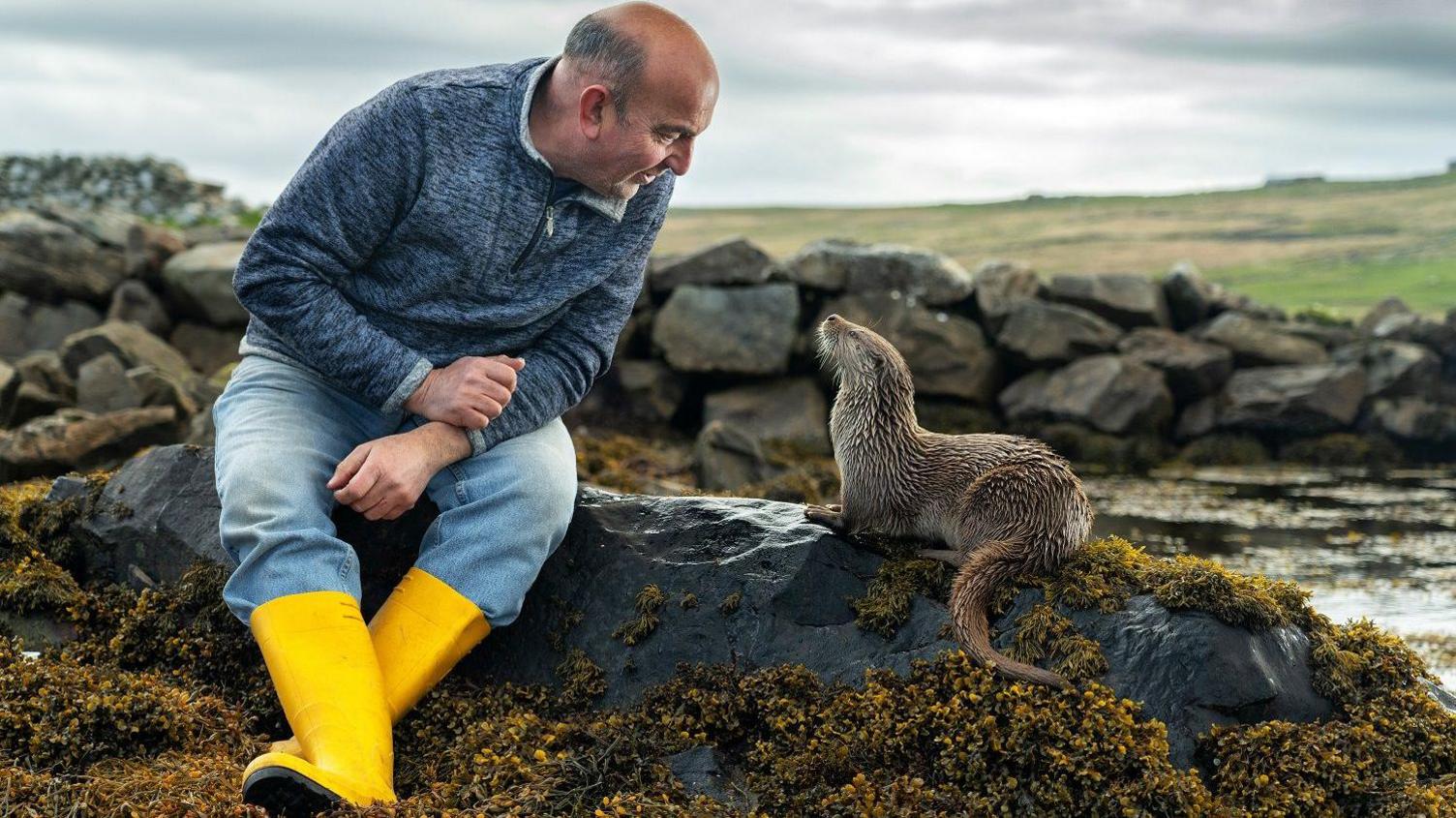
The otter cub appeared outside Billy Mail's Shetland home in 2021
It all began when 57-year-old Billy was sitting in his house and spotted the cub diving off the nearby pontoon.
"Curiosity got the better of me and I decided to see how close I could get to it," he says.
Billy knew something wasn't right when the usually timid animal sat next to him to eat her prey.
"She stopped eating, looked me right in the eye, and then went back to it," he says.
"I thought 'that's not right, a wild otter should've run away at that point'."
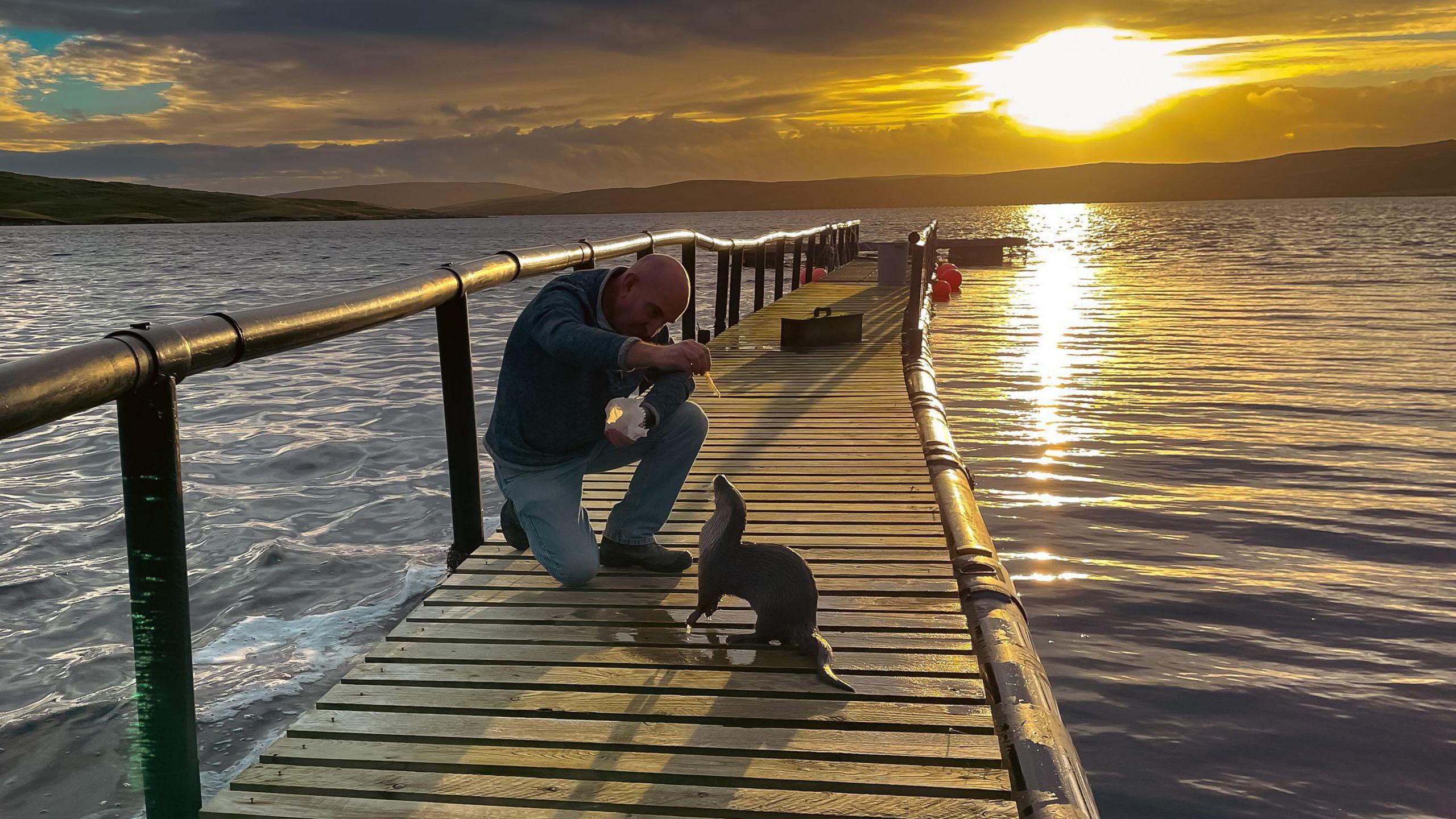
Billy met Molly for the first time on a pontoon ten metres from his Shetland house
Billy knew a female otter had been found dead in the area recently, so he assumed the cub was her orphan.
"She was really thin and emaciated, but she wasn't unhealthy - she was just hungry," he says.
A local wildlife sanctuary advised him that feeding the animal was allowed as long as he didn't domesticate her.
After obtaining the stamp of approval from his wife Susan, Molly the otter became part of the Mail family.
'A breath of fresh air'
The couple say Molly came to their life at a really good time.
They had recently moved back to Shetland, where Billy was originally from, not long after he had lost both of his parents in a short span of time.
On top of that, the coronavirus pandemic hit just as they started building a new extension to their home.
Molly's arrival was "a breath of fresh air" for both of them.
"There was a lot of stuff happening at the time and Molly turned up right in the middle of that," says Billy.
"She was a lovely distraction."
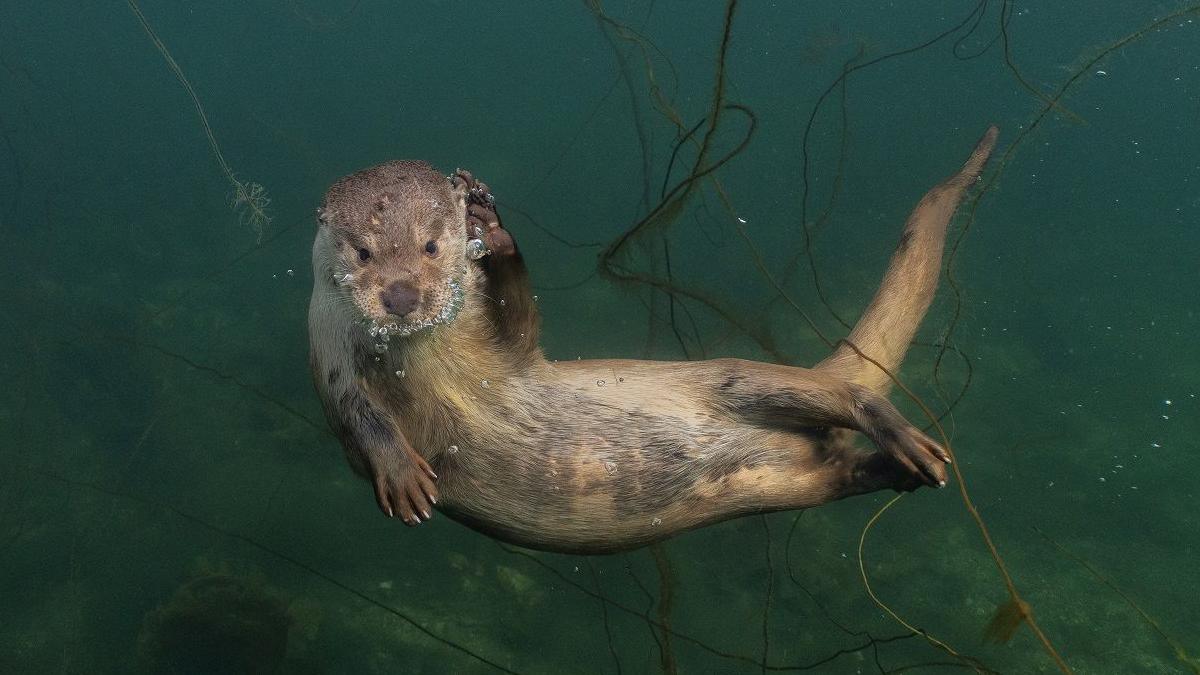
Billy and Susan said Molly's arrival was a breath of fresh air in their hectic lives
Airport manager Susan, 59, says she noticed a change in her husband's mood.
"Watching what he got back from helping an animal who needed it was incredibly emotive and touching," she said.
But Susan says she had a rocky start with Molly, with the cub rolling in her plant pots and chasing her into the shed when Billy wasn't around.
She says she was a bit afraid because she had never interacted with a wild animal before.
"The more I watched and learned, the more I saw that she wasn't aggressive at all." Susan said.
The otter antics
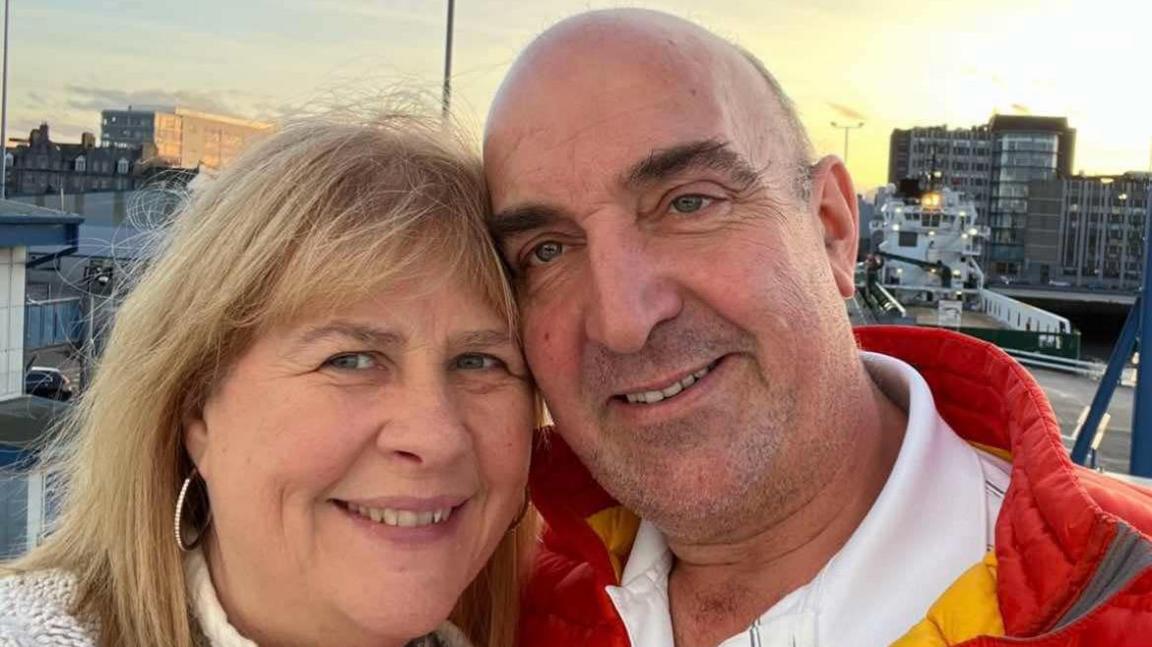
Susan had never interacted with a wild animal before she met Molly
Despite learning how to co-exist with Molly, Susan often found herself being "bad cop" in the relationship.
One day, she found a package with dozens of coloured plastic balls addressed to Billy.
She said: "I thought 'no chance, he's not bought these for her' - and he had."
A few minutes later, Molly was kicking around in her own mini ball pool.
This was Billy's attempt to simulate play time - something Molly would spend most of her day doing with other otters if she grew up in the wild.
Susan later found out the pool was just the beginning.
Instead of working on their long-overdue extension, Billy built a miniature croft house for the otter, equipped with a camera, wi-fi and a set of Mail family photos.
Billy and Molly hit the silver screen
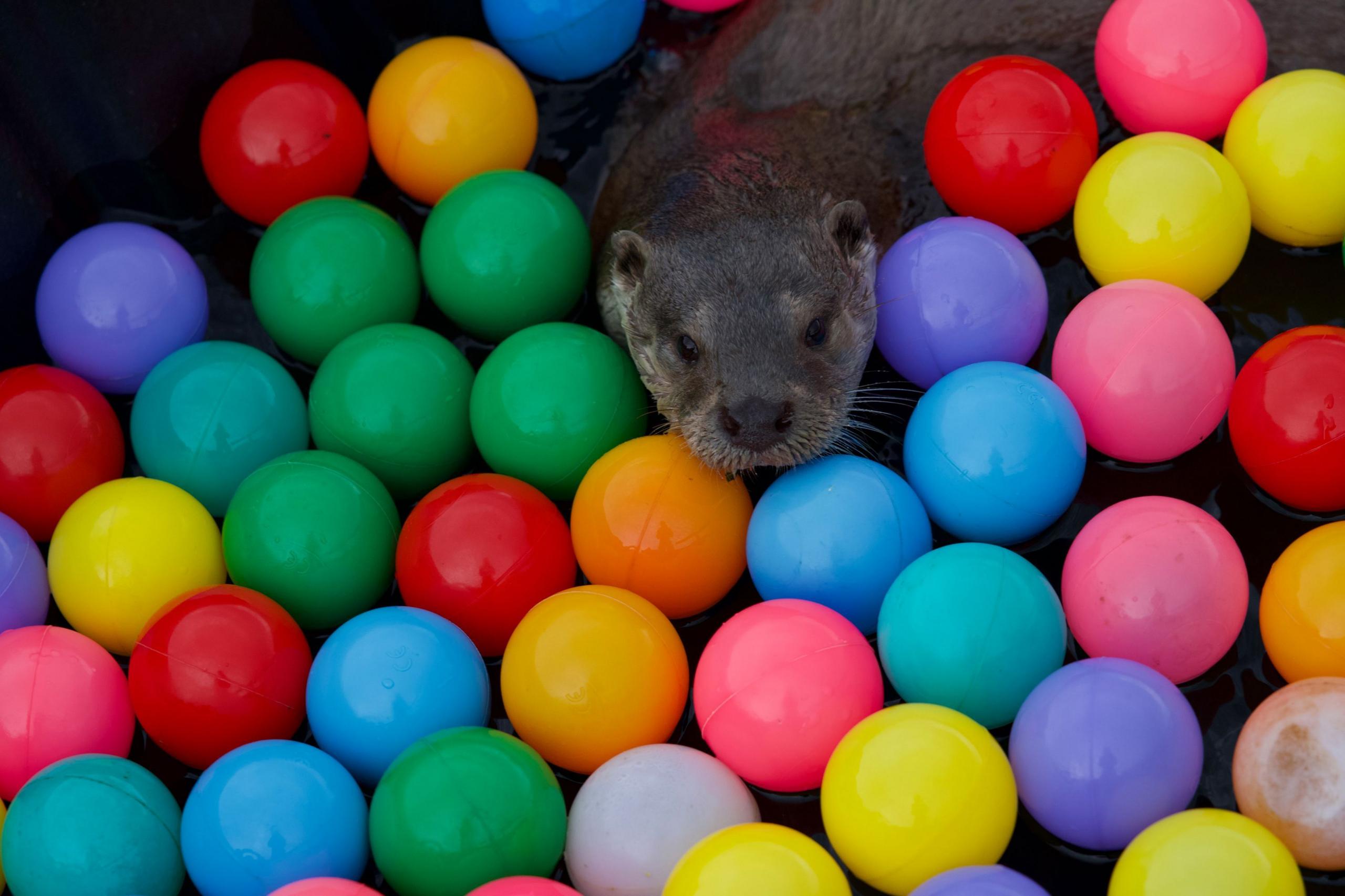
Billy created the 'ball pool' for Molly to simulate play time
It didn't take long for others to notice Billy's new friend.
Filmmaker Charlie Hamilton-James, who had been regularly visiting Shetland since he was a teenager, found out about Molly and arranged to meet the couple.
"I never knew who Charlie was," Billy says. "But it turns out he was one of National Geographic's top photographers."
He approached the couple with an idea to turn their unusual story into a film.
"I said 'no chance', but then we thought 'you know what, life is too short, let's go for it'," says Billy.
Billy and Molly: An Otter Love Story premiered in March at the festival South by Southwest in Texas.
Susan says seeing the final cut made her cry.
"My family say I'm the woman with the heart of stone, but I found it very emotional."
Since then, the film has won an award at Bristol's Wildscreen Festival and is nominated in several categories at the prestigious American Critics Choice Documentary Awards.
Was there a happy ending?
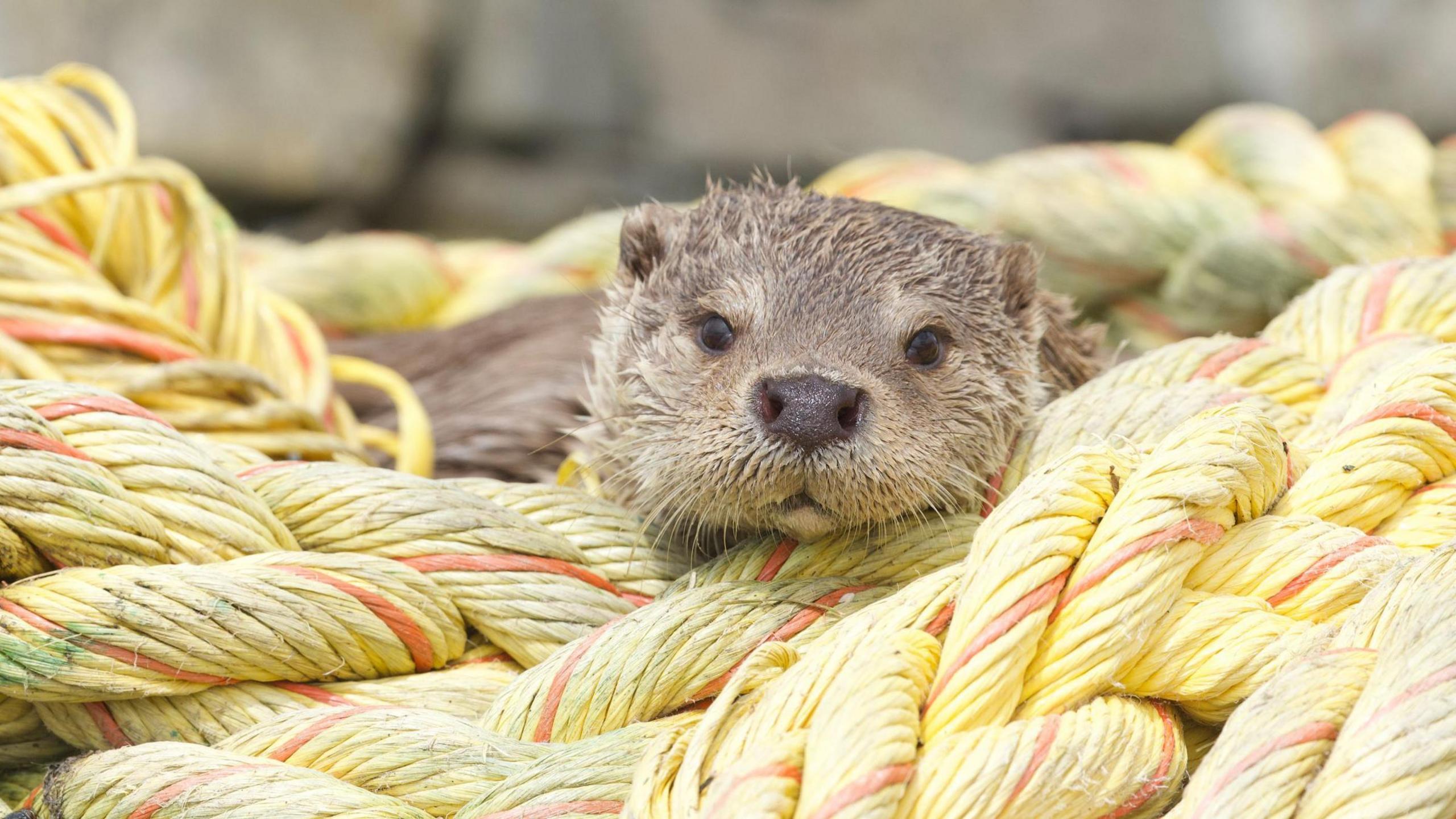
Molly has made Billy fall in love with nature again
The couple say they always knew that, no matter how cute and friendly she was, Molly was a wild animal.
After months of spending every day with her, Billy decided to stop feeding the cub, giving her plenty of time to learn how to fend for herself before the winter.
"He knew when it was the right time to let her go," Susan says.
Molly's visits became more and more scarce until they stopped altogether.
Not knowing what had happened to her, Billy spent weeks worrying about the possibility of her dying in the harsh winter that had hit Shetland in 2022.
On one snowy night, the camera in Molly's croft-house automatically switched on, alerting the couple there was a visitor inside.
She was back, and she wasn't alone.
"We were really happy to see she was still alive, still thriving and in a really good condition. The bonus was that she was pregnant," says Billy.
Molly gave birth to her own cub in "her house", and the two of them are still regular visitors to the Mails' garden.
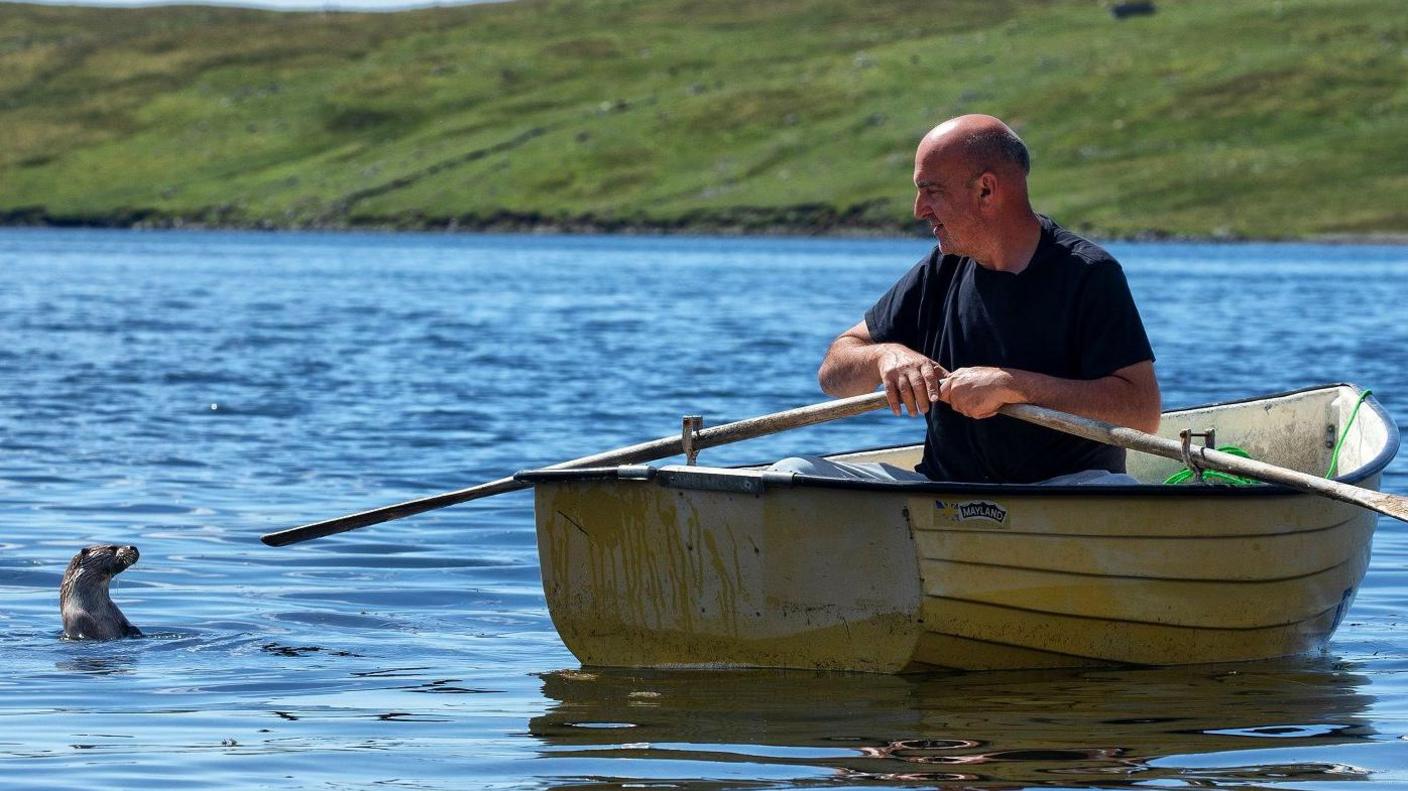
Molly still visits the Mail family on regular basis
"The one thing Molly taught me was compassion," says Susan.
She also brought new joy to Billy's life by making him fall in love with nature again - something he had forgotten a long time ago.
"To take this otter that was cute and cuddly, but in desperate need of help, and to feed her and nurture her through adolescence and help her develop into a fully-grown adult, then off she went and hung out with her own family - observing that circle of life happening but also being a part of it was incredibly rewarding," he says.
Billy and Molly: An Otter Love Story is streaming on Disney+ from 14 November, and airs on 15 November on the National Geographic channel.

Sign up here to receive our new weekly newsletter.